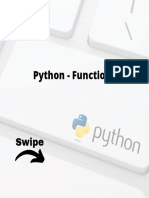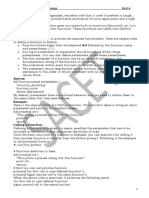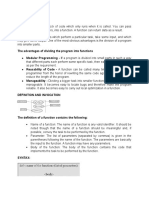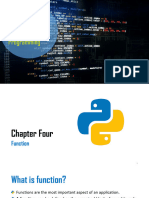0% found this document useful (0 votes)
32 views23 pagesFunctions
The document discusses user-defined functions in Python. It explains how to define functions, pass parameters, call functions and provides examples of defining, calling and passing arguments to functions.
Uploaded by
indu7405Copyright
© © All Rights Reserved
We take content rights seriously. If you suspect this is your content, claim it here.
Available Formats
Download as PPTX, PDF, TXT or read online on Scribd
0% found this document useful (0 votes)
32 views23 pagesFunctions
The document discusses user-defined functions in Python. It explains how to define functions, pass parameters, call functions and provides examples of defining, calling and passing arguments to functions.
Uploaded by
indu7405Copyright
© © All Rights Reserved
We take content rights seriously. If you suspect this is your content, claim it here.
Available Formats
Download as PPTX, PDF, TXT or read online on Scribd
/ 23


























































